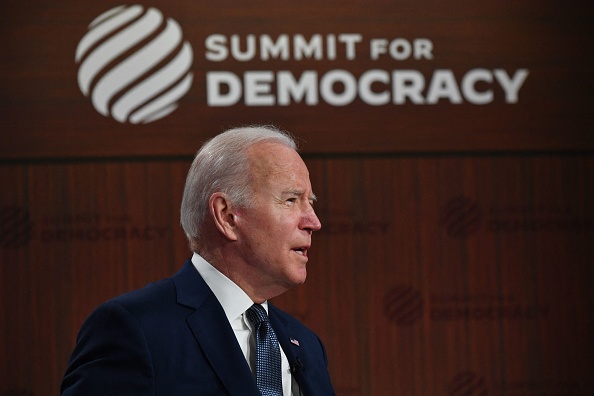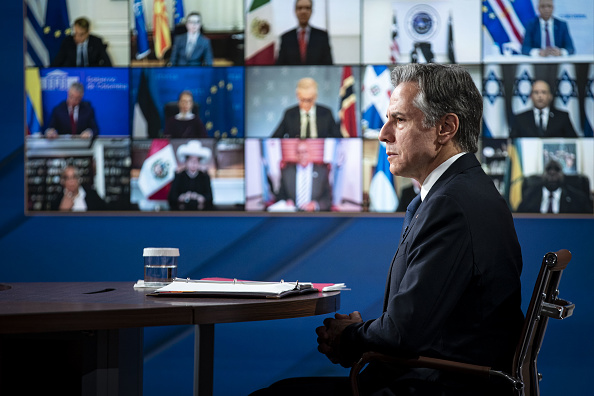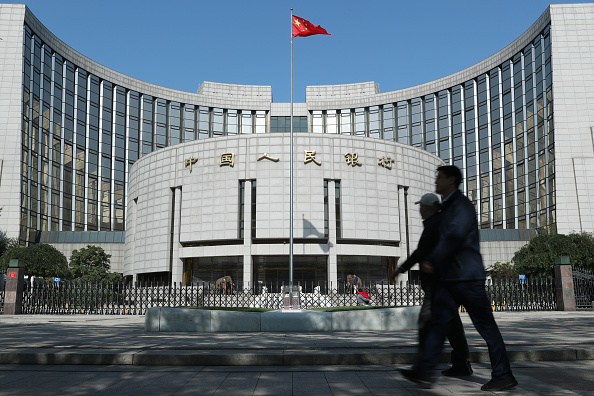
 Debating Democracy
Debating DemocracyOver one hundred global leaders gathered virtually Thursday and Friday for U.S. President Joe Biden's "Summit for Democracy," the first of two conferences convening leaders from government, civil society, and the private sector in an effort to set forth an affirmative agenda for democratic renewal and to tackle the greatest threats faced by democracies today.
"In the face of sustained and alarming challenges to democracy, universal human rights, and all around the world, democracy needs champions," Biden said as the summit commenced. He also noted that the U.S. knows that renewing its own democracy requires constant effort, serving as one of the reasons he wanted to hold this summit.
Representatives from Taiwan were invited to attend the summit, while representatives from Beijing were not. Instead, China held its own dialogue on democracy last week promoting the concept that "China's political system is, in fact, a high-functioning form of democracy of a different sort." China's State Council also released a white paper entitled, "China: Democracy That Works," while the Foreign Ministry released its own report criticizing the state of democracy in the U.S.
Both Chinese and Russian ambassadors also posted tweets aimed at undermining the summit, even writing that the summit itself is anti-democratic.
 Diplomatic Tensions
Diplomatic TensionsPresident Biden's Summit for Democracy was not only met with criticism by both China and Russia, it was also surrounded with diplomatic tensions preceding the event. Secretary of State Anthony Blinken said this week that if China or Russia attempted deploy military forces into Taiwan or Ukraine, there would be severe consequences. The statement from Blinken followed a warning by President Biden to Russian President Vladimir Putin on a phone call discussing the same matter earlier this week. While Blinken noted that the U.S. has remained consistent in its policy for forty years to ensure Taiwan's means to defend itself, these comments, along with its invitation to Taiwan to attend Biden's summit, have continued to contribute to Beijing's belief that the U.S. is undermining its One China Policy.
The United States also officially announced a diplomatic boycott of the 2022 Beijing Winter Olympics prior to the Summit for Democracy after a few weeks of experts anticipating the prospect of such an action. Australia made a similar announcement earlier this week, and the U.K. and Canada were quick to follow suit, with all countries citingChina's alleged human rights concerns as the reasoning for the move.
China has condemned the boycott and threatened to retaliate, though did not go into specific details about what retaliation would look like. "The United States, Britain and Australia have used the Olympics platform for political manipulation," Wang Wenbin, a spokesperson at the Chinese foreign ministry, said. Beijing also accused the U.K. of trying to smear the Olympics, and emphasized that many of the ministers and officials planning to boycott had not yet been invited to the Games by the Chinese government.
For more, watch "Trilateral Security," a video by Richard Weitz, a Senior Fellow at Hudson Institute.
 Money Moves
Money MovesThis week, Beijing began the process of tightening tech startups' abilities to seek foreign funding. Regulators are reportedly creating a blacklist of new companies in "sensitive sectors" and ones that use variable interest entities — structures that circumnavigate international restrictions such as majority voting rights on investments. The blacklist will likely limit the role of foreign shareholders in China's up and coming tech companies. The U.S. has instituted similar initiatives to limit Chinese investment in Silicon Valley start-ups. The move also comes after Chinese tech giant Didi announced a planned exit from the U.S. stock market just last week.
China is also making moves to rein in its central bank in efforts to tamp down on lax regulations across various sectors, such as tech, property, and education. After reports of pressure from senior leaders about slowing economic growth, the People's Bank of China announced that it would "ease banks' reserve requirements," which would essentially make more cash available for lending. The PBOC oversees one of the world's largest financial systems, making it one of most consequential financial institutions of the 25 currently in review by President Xi's discipline inspectors.
Amid Xi's new regulations and China's economic slowdown, Beijing has also pledged to "front-load" policies to shore up the economy next year, as China's top leaders convened today for the annual Central Economic Work Conference to decide the economic agenda for 2022. The meeting was attended by President Xi Jinping, among other members of the Politburo Standing Committee. Economic analysts are anticipating continuing signs that bolster the move to looser economic policy, indicated by a Politburo meeting last week.
For more, read "Pitfalls of Quantitative Easing," by Christoper McNally, a Professor of Political Economy at Chaminade University.
Prepared by China-US Focus editorial teams in Hong Kong and New York, this weekly newsletter offers you snap shots of latest trends and developments emerging from China every week, while adding a dose of historical perspective.
- 2021-12-03 Managing Competition
- 2021-11-19 Responsible World Leadership
- 2021-11-12 A Historic Transformation
- 2021-11-05 A Green Rivalry
- 2021-10-29 Dry Tinder
- 2021-10-22 A Diplomatic Burn
- 2021-10-15 Energy Crunch
- 2021-10-08 Stoking Tensions
- 2021-10-01 Great Power Coopetition
- 2021-09-24 Sign of Goodwill?
- 2021-09-17 State of Play
- 2021-09-10 The Last Word
- 2021-09-03 Heightened Frustrations
- 2021-08-27 China’s Backyard
- 2021-08-20 Graveyard of Empires
- 2021-08-13 A New Crossroads
- 2021-08-06 Lowering Barriers
- 2021-07-30 A Diplomatic Stalemate
- 2021-07-23 A Climate for Change
- 2021-07-16 The Trade Game
